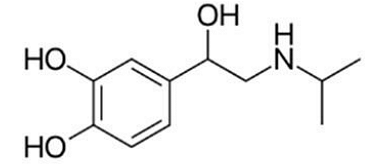Question:
Which of the following genes responsible for graft rejection in humans?
Which of the following genes responsible for graft rejection in humans?
Updated On: Nov 11, 2025
- Highly polymorphic HLA genes
- APP genes
- hMSH2 gene
- FMR1 gene
Hide Solution
Verified By Collegedunia
The Correct Option is A
Solution and Explanation
The question asks which genes are responsible for graft rejection in humans. The correct answer is "Highly polymorphic HLA genes." Let's break down the reasoning:
- Understanding Graft Rejection: Graft rejection is the immune response against a transplanted organ or tissue. The immune system recognizes the transplanted organ as foreign due to differences in certain proteins between the donor and recipient.
- Role of HLA Genes:
- The Human Leukocyte Antigen (HLA) system is a group of genes in humans that encode for proteins on the surface of cells that are responsible for regulation of the immune system.
- HLA genes are highly polymorphic, meaning there is a lot of genetic variation in the population, which causes the immune system to recognize the graft as foreign, leading to rejection.
- Eliminating Other Options:
- APP genes: These are associated with amyloid precursor protein, involved in Alzheimer’s disease, not with graft rejection.
- hMSH2 gene: This gene is related to repairing DNA mismatch, typically discussed in the context of certain cancers, not graft rejection.
- FMR1 gene: This gene is associated with fragile X syndrome, a genetic condition leading to intellectual disability, and is unrelated to graft rejection.
- Conclusion: The correct option “Highly polymorphic HLA genes” is responsible for graft rejection due to their role in the immune system and genetic variability.
Hint: When dealing with questions related to graft rejection, always consider the role of HLA genes, as they are crucial in distinguishing self from non-self in the immune system.
Was this answer helpful?
0
0
Top Questions on Biogenetic pathways
- The below structure represent the drug:

- GPAT - 2024
- Pharmacognosy
- Biogenetic pathways
- The below structure represent the drug:

- GPAT - 2024
- Pharmacognosy
- Biogenetic pathways
- Which one is not the characteristics of the Hexose Monophosphate Pathway?
- GPAT - 2023
- Pharmacognosy
- Biogenetic pathways
- Arrange the following intermediates in the synthesis of isoprenoids in the right sequence
A. Squalence
B. Farnesyl PP
C. Geranyl PP
D. Acetyl CoA
E. Mevalonate
Choose the correct answer from the options given below:- GPAT - 2023
- Pharmacognosy
- Biogenetic pathways
- Which one of the following is an autosomal dominant syndrome in its inheritance?
- GPAT - 2023
- Pharmacognosy
- Biogenetic pathways
View More Questions
Questions Asked in GPAT exam
- Match the following:
(1) Schedule FF
(2) Schedule F3
(3) Schedule V
(4) Schedule Y
Descriptions:
(P) Standards of patent and proprietary medicines
(Q) Requirements and guidelines for clinical trials
(R) Standards for sterilized umbilical tapes
(S) Standards for Ophthalmic preparations- GPAT - 2025
- Drug therapy
- If the label or the container bears the name of an individual or company purporting to be the manufacturer of the drug, which individual or company is fictitious or does not exist, it is:
- GPAT - 2025
- Drug therapy
- Manufacturing Specification for tooling has been standardized by?
- GPAT - 2025
- Pharmacy Profession & Introduction to Pharmaceuticals
- As per USP, the maximum concentration of benzalkonium chloride used as a preservative in parenteral formulations is
- GPAT - 2025
- Pharmaceutical Analysis
Match the following:
(P) Schedule H
(Q) Schedule G
(R) Schedule P
(S) Schedule F2
Descriptions:
(I) Life period of drugs
(II) Drugs used under RMP
(III) List of Prescription Drugs
(IV) Standards for surgical dressing
- GPAT - 2025
- Drug therapy
View More Questions